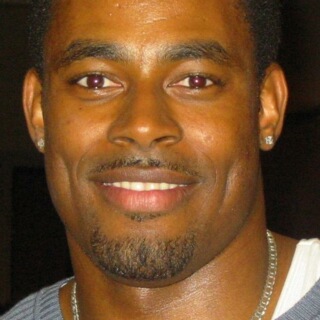A Quote by August Wilson
Scripts were rather scarce in 1968. We did a lot of Amiri Baraka's plays, the agitprop stuff he was writing. It was at a time when black student organizations were active on the campuses, so we were invited to the colleges around Pittsburgh and Ohio, and even as far away as Jackson, Mississippi.
Related Quotes
I was roommates with 2 of the guys who were influential in forming the Black Arts philosophy. I called them "goons," and [Amiri] Baraka took offense at that. But if you read his autobiography, the night we went up there for a fundraiser, he talks about how he wished that some violence would happen to us. How do you like Baraka as a gracious host?
I was born in Jackson, Mississippi, in 1969, in a time and place where no one was saying, 'Look how far we've come,' because we hadn't come very far, to say the least. Although Jackson's population was half white and half black, I didn't have a single black friend or a black neighbor or even a black person in my school.
I am thrilled to return as Honorary Captain of the GREEKs for HBCUs Team. I reflect fondly on my days at Florida A&M University, and how visible and active all of the sororities and fraternities were. Membership in Black Greek letter organizations on college campuses is preparation for a lifetime of service.
I was born in Jackson, Mississippi, in 1969, in a time and place where no one was saying, Look how far weve come, because we hadnt come very far, to say the least. Although Jacksons population was half white and half black, I didnt have a single black friend or a black neighbor or even a black person in my school.
I wrote lots of scripts that never got made and they were terrible. I thought they were good at the time. You can't write two scripts and expect your career to take off. Keep writing. Be you. Be original. A lot of people go for a genre, which is fine if you can do that really well, but we all have such layered histories. We all come from a unique background. Write about your past, write about you. Or make stuff up, but make it about something that really matters.
In the thirties a whole school of criticism bogged down intellectually in those agitprop, social-realistic days. A play had to be progressive. A number of plays by playwrights who were thought very highly of then - they were very bad playwrights - were highly praised because their themes were intellectually and politically proper. This intellectual morass is very dangerous, it seems to me. A form of censorship.
There was a time I was no longer going to be black. I was going to be an 'intellectual.' When I was first looking around for colleges, thinking of colleges I couldn't afford to go to, I was thinking of being a philosopher. I began to understand then that much of my feelings about race were negative.
There was a Yale even before Larry [Kramer] and I got there, and there were three designations of students: "white shoe," "brown shoe," and "black shoe." "White shoe" people were kind of the ur-preppies from high-class backgrounds. "Brown shoe" people were kind of the high school student-council presidents who were snatched up and brushed up a little bit to be sent out into the world. "Black shoe" people were beyond the pale. They were chemistry majors and things like that.
In 1990, when we started the Black Community Crusade for Children, we were always talking about all children, but we paid particular attention to children who were not white, who were poor, who were disabled, and who were the most vulnerable.Parents didn't think their children would live to adulthood, and the children didn't think they were going to live to adulthood. That's when we started our first gun-violence campaign. We've lost 17 times more young black people to gun violence since 1968 than we lost in all the lynching in slavery.
In 1967, the students at San Francisco State invited the poet Amiri Baraka to the campus for a semester. He attracted other influential black writers such as Sonia Sanchez, Ed Bullins, Eldridge Cleaver. What emerged was something we called the community communications program. That's how I got involved; I got involved in a little play.
In 1967, the students at San Francisco State invited the poet Amiri Baraka to the campus for a semester. He attracted other influential black writers such as Sonia Sanchez, Ed Bullins, Eldridge Cleaver. What emerged was something we called the community communications program. That's how I got involved; I got involved in a little play
There were colored and white waiting rooms everywhere, from doctor's offices to the bus stations, as people may already know. But there were actually colored windows at the post office in, for example, Pensacola, Florida. And there were white and colored telephone booths in Oklahoma. And there were separate windows where white people and black people would go to get their license plates in Indianola, Mississippi. And there were even separate tellers to make your deposits at the First National Bank in Atlanta.




































